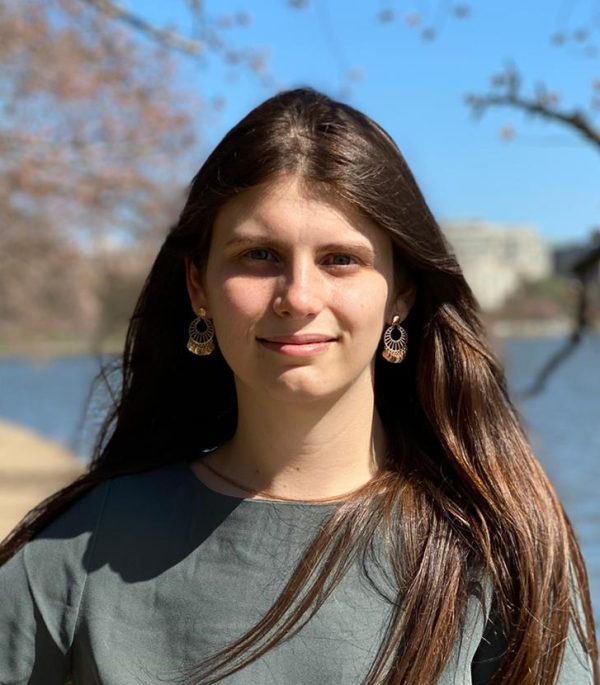
Pro-Peace Civil Society Under Pressure in Turkey: Status Quo or Cover-Up?
Journalists and human rights defenders face criminal investigations, arrests, and dangerous rhetoric from the highest levels of government in the wake of allegations that Turkey may have used prohibited weapons in Iraqi Kurdistan.
Earlier this month, the German NGO International Physicians for the Prevention of Nuclear War released a report on allegations of Turkish chemical weapons use in military operations against the Kurdistan Workers’ Party (PKK) in Iraqi Kurdistan.
The report did not come to any conclusions about Turkish breaches of the Chemical Weapons Convention. Its authors were blocked from investigating at least one of the most credible instances of likely Turkish chemical weapons use that has been reported in the region. It did find, however, that there was sufficient cause for an impartial international investigation to take place.
Days after the publication of the report, Kurdish news agency ANF released video footage of two PKK guerrillas showing symptoms of chemical weapons exposure. Both were among 17 fighters the group reports have lost their lives as a result of chemical attacks in recent months.
Erdogan’s government scrambled to deny the allegations, with multiple government bodies and senior officials issuing scathing condemnations of the claims. But it did not stop there.
On October 25th, 11 journalists from independent Kurdish news outlets Mezopotamya Agency and JINNEWS were taken into custody in violent house raids.
Mezopotamya Agency and JINNEWS have a long record of investigative reporting on human rights violations and abuses of power in Kurdish regions. Both were among the only news outlets based in Turkey to have challenged the government line and taken the allegations of chemical weapons use seriously.
On October 26th, Turkish Medical Association chair Dr. Sebnem Korur Fincanci, a physician and renowned human rights defender who called for an investigation into alleged chemical weapons use based on the IPPNW report and ANF footage, was arrested on charges of terrorism and ‘spreading disinformation.’
Prior to her arrest, Fincanci had been threatened by Turkish President Recep Tayyip Erdogan and his far-right coalition partner Devlet Bahceli over her call for accountability. Bacheli went so far as to claim that she ought to be stripped of her citizenship and ‘sentenced to statelessness.’
It is reasonable to ask what Erdogan’s government is trying to hide by vilifying and jailing citizens of Turkey who simply wish to determine whether their country has breached its international legal obligations and to hold those responsible accountable if it is found to have done so.
The answer goes well beyond recent allegations. Since Turkey resumed its cross-border military operations after the 2015 breakdown of peace talks with the PKK, journalists, human rights groups and international organizations have documented countless rights violations allegedly carried out by Turkish forces and their local allies in Iraq and Syria.
The potential use of chemical weapons is just the tip of the iceberg: airstrikes and drone strikes on civilian targets, extrajudicial killings, pervasive violence against women, forced displacement of ethnic and religious minorities, deportations of vulnerable refugees, and other horrors have all been meticulously documented over the past seven years.
Turkish leaders have not taken responsibility for any of these abuses—reinforcing a dangerous culture of impunity that has become a defining feature of the Kurdish conflict.
There is no publicly available information indicating that any potential Turkish war crime in Iraq or Syria has been investigated domestically or that any Turkish perpetrator has been punished. Meager efforts to hold Syrian militias under Turkish control accountable have barely scratched the surface of the abuses carried out by these groups and have not led to meaningful changes in their behavior towards civilians.
Rights defenders, journalists, civil society groups, and even elected opposition politicians that have spoken out against these abuses have been slapped with the same anti-state charges now used against those who wish to see claims of chemical weapons use investigated.
Continuing to give Turkey a blank check to commit serious rights abuses in Iraq and Syria and silence the strongest domestic voices for peace, justice, and accountability will have disastrous consequences for the region.
It will embolden Erdogan to continue deadly and destabilizing cross-border operations in these countries—against the wishes of its allies and at great cost to local communities.
It also may lead his government to believe that it is free to use the same tactics elsewhere—potentially in Armenia, under renewed threat of invasion by Turkey’s Azerbaijani allies, or in Greece, where Erdogan has repeatedly threatened that the Turkish military may invade ‘suddenly one night.’
To promote regional stability and strengthen basic international legal principles at a time when both are under attack by autocrats worldwide, the international community must stand with citizens of Turkey facing threats and prison time for their efforts to hold their government accountable to basic international legal standards.
To that end, policymakers should:
- Demand the immediate release of Dr. Sebnem Korur Fincanci, the detained Mesopotamia Agency and JINNEWS journalists, and all individuals jailed on terrorism charges or other anti-state charges in Turkey for bringing light to alleged government violations of the laws of war and human rights abuses.
- Condemn rhetoric by the government of Turkey that conflates criticism of the government’s foreign policies and calls for justice and accountability with terrorism or treason, particularly those comments single out certain individuals and have the potential to incite credible threats or violence against them.
- Demand impartial international investigations of human rights abuses and violations of the laws of war, including the potential use of chemical weapons, in Turkey’s cross-border military operations in Iraq and Syria. These investigations should be directed towards sustainable peace-building and actionable accountability.
(Photo: OZAN KOSE/AFP via Getty Images)



